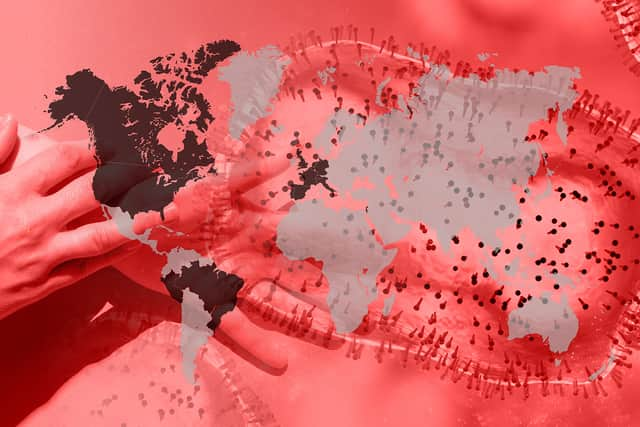Monkeypox: figures show disease is spreading fastest in West Midlands
This article contains affiliate links. We may earn a small commission on items purchased through this article, but that does not affect our editorial judgement.
and live on Freeview channel 276
Cases of monkeypox have increased by more than 30% in the West Midlands - higher than anywhere else in England.
More than 2,400 cases of monkeypox have been confirmed in the UK, the latest figures from the UK Health Security Agency (UKHSA) show. Between 6 May and 25 July there were 2,432 confirmed cases across the UK, an increase of 159 since the last reporting date on 21 July, figures released on Tuesday (26July) show, 65 highly probable cases have also been identified.
Advertisement
Hide AdAdvertisement
Hide AdThe World Health Organisation (WHO) declared the current outbreak a global health emergency on Saturday (23 July), after over 16,000 cases were reported in more than 70 countries.
England has recorded a total of 2,325 monkeypox cases with 73% (out of 2,313 where the home address was known) being identified in London. The capital has 1,699 confirmed cases in total, followed by the South East with 199 and the North West with 120. Twelve cases remain under investigation and are not yet publicly linked to a region. Outside of England, Scotland has recorded 59 cases in total, followed by 30 in Wales and 18 in Northern Ireland.


What do the figures show locally?
The data shows that monkeypox is spreading fastest in the West Midlands, with a 31% increase in cases in the region in just four days.
On July 21, there were 52 confirmed cases of the disease in the region, this jumped to 68 on July 26. Yorkshire and the Humber had the secnd highest increase with cases jumping from 35 to 42 (20%) between the same dates.
Advertisement
Hide AdAdvertisement
Hide AdThe south west saw cases increase by 14.7%, from 34 cases to 39 between July 21 and July 25, and in London cases increased by 9.7% in that time.


How is it spread?
The monkeypox virus is usually a mild illness that will get better on its own without treatment, but some people can develop more serious symptoms, so patients with monkeypox in the UK are cared for in specialist hospitals.
However, there have only been a very small number of cases of monkeypox in the UK and when there is a case, health professionals will aim to contact anyone who has been in close contact with the infected person.
The UKHSA said the outbreak has been largely identified in gay or bisexual men, and other men who have sex with men without documented history of travel to endemic countries. Where gender information was available 99.3% of cases were male and 18 were female. The median age of confirmed cases in the UK was 37 years.
Advertisement
Hide AdAdvertisement
Hide AdThe NHS website says: “If you have not been contacted, be reassured you are extremely unlikely to catch monkeypox.”
Monkeypox does not spread easily between people, but it’s possible to catch it from: touching items like clothing, bedding or towels used by an infected person, touching monkeypox spots or scabs, a person with a monkeypox rash who coughs or sneezes near you.
A message from the editor:
Thank you for reading. BirminghamWorld is Birmingham’s latest news website, championing everything that is great about our city - reporting on news, lifestyle and sport. We want to start a community among our readers, so please follow us on Facebook,Twitter and Instagram, and keep the conversation going.
Comment Guidelines
National World encourages reader discussion on our stories. User feedback, insights and back-and-forth exchanges add a rich layer of context to reporting. Please review our Community Guidelines before commenting.
